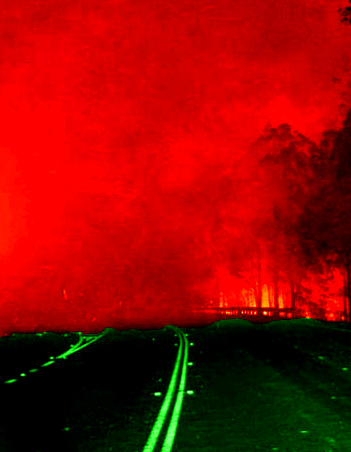Site change fails to move environmental facts
 A page on the Environment Department’s website has been changed to remove a link between climate change and extreme weather.
A page on the Environment Department’s website has been changed to remove a link between climate change and extreme weather.
Some say the Federal Government is hoping that the effects of climate change can be mitigated by ignorance.
The previous version of the page on the Australian Department of the Environment's website accurately stated: “There is a growing and robust body of evidence that climate change will increase the frequency and intensity of extreme weather events” and that “Australia has experienced an increasing number and intensity of heatwaves, bushfires, flooding and droughts in recent decades”.
But a change was allegedly made to remove the line, replacing it with a general explanation of extreme weather.
The page manages to acknowledge the frequency and intensity of extreme weather is “changing”, conceding that “some studies” show this is linked to climate change. The Environment Department stresses, however, that it is “difficult to isolate the role of climate change in any given event”.
The change appears to move the departmental view more in line with the personal scientific outlook of Prime Minister Tony Abbott and Environment Minister Greg Hunt.
Tony Abbott has stated that he belies any link between bushfires and climate change is “complete hogwash”, and that the pre-eminent leader of the UN’s global climate change authority was “talking out of her hat” for suggesting such a link.
Similarly, Mr Hunt has previously used Wikipedia to support his notion that Australia has always had bushfires, and they are not getting worse.
The change was noticed by reporters at The Guardian.
Reporters asked Amanda McKenzie, a former government official and now chief executive of the Climate Council, why she thought the language may have softened.
“The evidence is absolutely unequivocal on the link,” she said.
“We know bushfire conditions are getting worse.
“We have to take the government on its word that it takes climate change seriously but there have been inaccurate statements made around extreme weather and it’s critical the public is provided the right information on these matters.”
She said the changes could be seen as move to factor in the latest findings of the Intercontinental Panel on Climate Change.
The most recent IPCC assessment, from March this year, said it had “medium to high confidence” that extreme weather events in Australia are “projected to increase in many locations”.
The international authorities’ broad-ranging study found Australia is also at risk from “increased damage to ecosystems and settlements, economic losses and risks to human life from wildfires in most of southern Australia”, according to the report.







 Print
Print